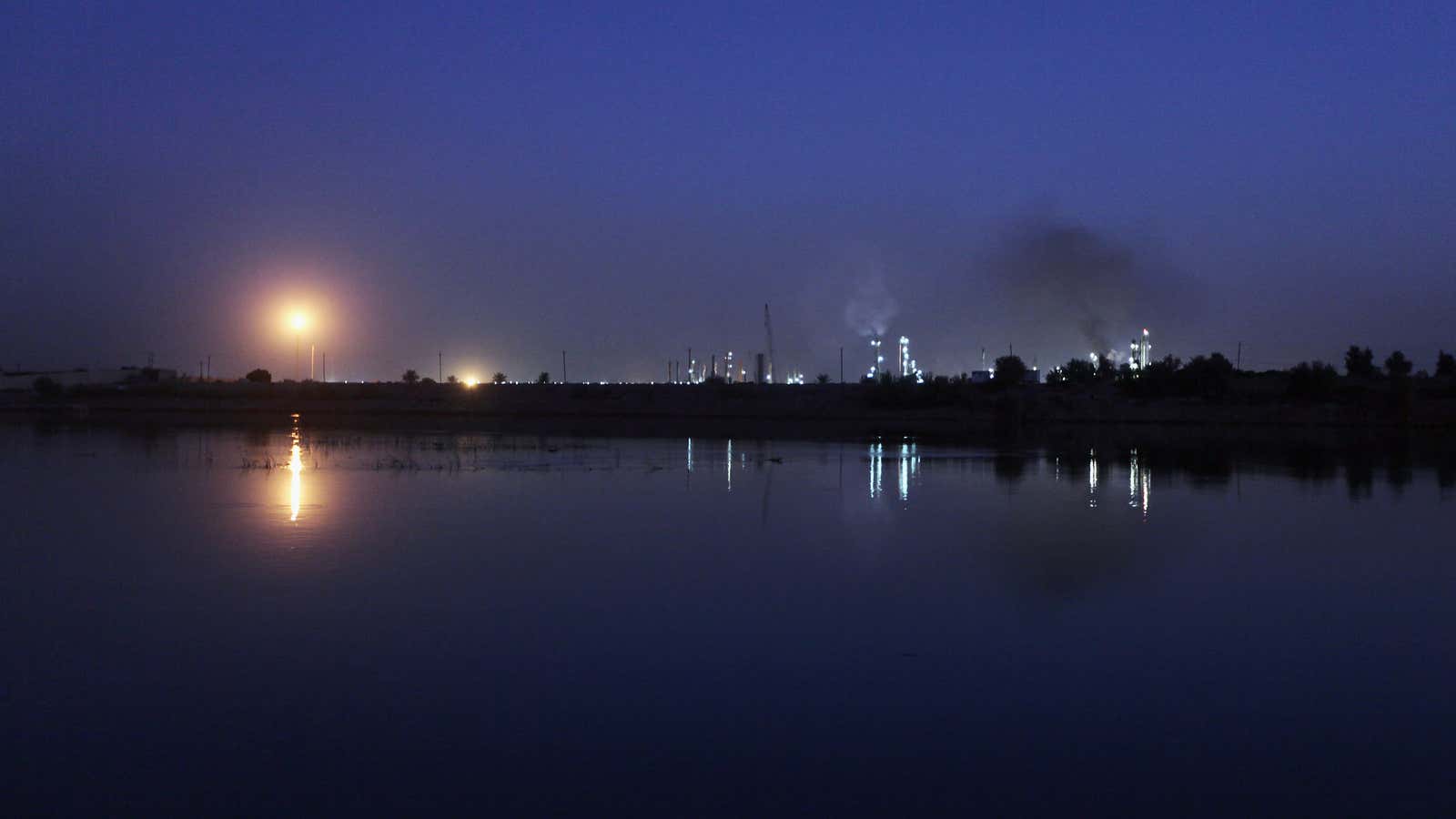A few months ago, ExxonMobil informed Iraq that, whether the government liked it or not, it intended to start drilling for oil in the autonomous region of Kurdistan. If by doing so it lost the right to produce oil in Iraq’s rich south, so be it. Now ExxonMobil may be in the midst of a deal allowing it to drill in both the north and south. If that happens, look for smoother politics in Iraq, and another step forward toward greater autonomy for the region’s Kurds.
The story is rooted in the conflicted Iraqis—they desperately want international oil companies to almost double their current production of 3.35 million barrels of oil a day, to six million barrels a day. But they want them to do so while behaving—and being paid—like salaried workers, and not the industry’s typical chest-beating, fortune-seeking roustabouts.
Over the last few years, the oil majors have played along, but with a silent wink—they have bet that, once they proved themselves, the Iraqis would reward them with a more traditional system of outsized gain for outsized performance.
It has been a bad bet—the old stingy terms have stuck, and most of the companies, including ExxonMobil, have opted to go north to the region of Kurdistan, where the contracts are much more generous. That, not incidentally, is illegal in Baghdad’s eyes. As a result, the balance of geopolitics in the region has shifted (see Quartz energy geopolitics indicator No. 10 on ExxonMobil’s role as a global Mountain). One impact is that not only are Iraq’s Kurds far more autonomous actors, but Turkey appears to be making a rapprochement with its own Kurdish population.
The only thing for Iraq to do is to get ExxonMobil back. On Jan. 21, CEO Rex Tillerson met with Iraqi Prime Minister Nuri al-Maliki in Baghdad. Afterward, a Maliki spokesman issued terse boilerplate as a statement:
ExxonMobil asked to meet with the prime minister to know his opinion on the company’s contracts in the south and in the northern region and if there was a possibility to keep working on both contracts. The prime minister’s answer was clear to the head of Exxon that they can’t keep operating on both deals at the same time and they should observe Iraq’s laws.
In short—Tillerson needed to choose his spouse and be faithful.
The next day, Tillerson flew to Zurich, where he met with Kurdistan President Masoud Barzani. When I contacted ExxonMobil, a spokesman declined to comment, and Barzani’s office issued no details. But the CEOs of the biggest oil companies do not ordinarily fly around the world to meet with presidents and prime ministers merely to be scolded, or to make nice. A face-saving agreement is in the works.
Look for ExxonMobil to stay with its old deal in supergiant oilfield West Qurna, but with either explicit or implicit promise of better revenue. (Also look for Iraq’s next oil tender to have more generous terms).
ExxonMobil will not want to surrender its toehold in the north, either, so Kurdistan will not end up the loser: Look for a continued Kurdish effort, backed by the oil majors, to build dedicated oil and natural gas export pipelines through Turkey to the market.
